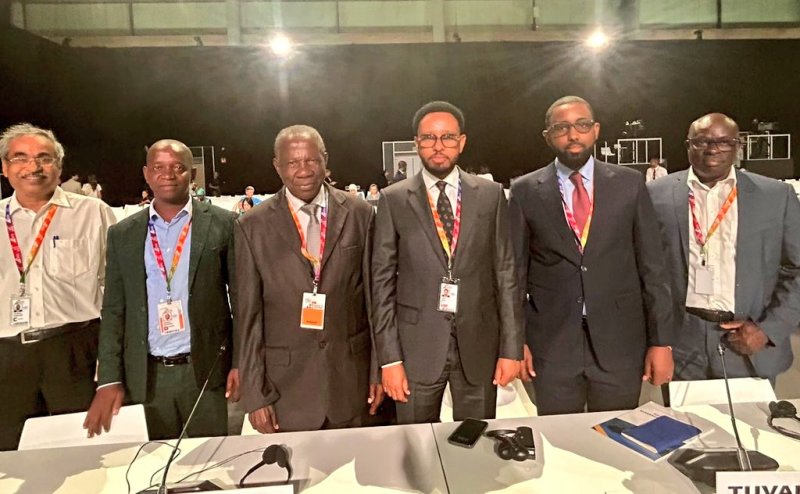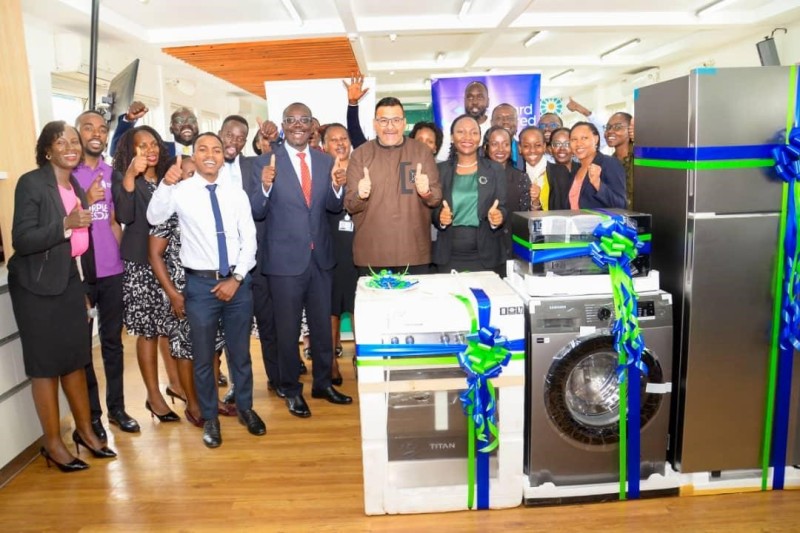Why it is important to keep your records in digital format
Digitization and automation make documents and records accessible which in the end makes service delivery smooth and this is critical.
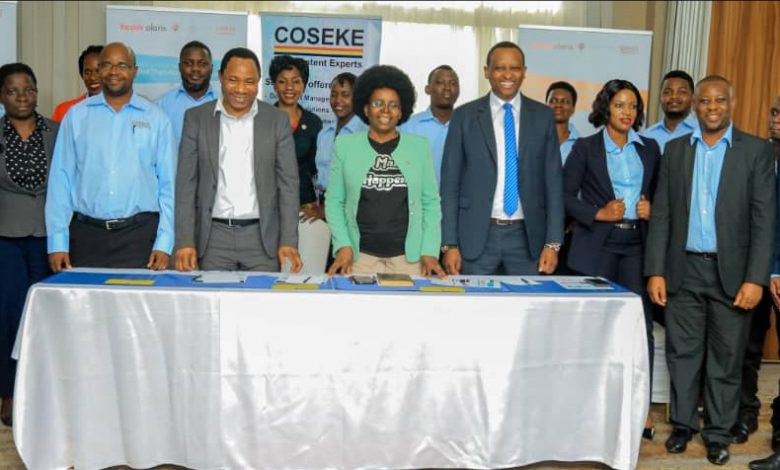
Many organizations are stuck with tons of paperwork that has important information they don’t want to lose yet they are running out of storage space or these piles of papers are getting destroyed by weather or other factors.
Such organizations risk losing this important information when the stores get burnt by fire or the paperwork is stolen by thieves or saboteurs. It should be noted that losing information dating back decades can be a great setback and an encumbrance.
To avoid such a setback, experts are encouraging organizations with large amounts of paperwork to go digital and transfer their hard copies into soft copies so that their data is stored in a more safe format.
Josephat Macheta, the Country Manager of Coseke Uganda, speaking to Charmar News in an interview at the Digital Transformation Workshop in Kampala last week, said digital transformation is a matter of urgency for organizations and governments because of the benefits associated.
The workshop was organized by Coseke and partners Kodak Alaris and Rookie Ninja to capture customer feedback on products and services they deliver and also share knowledge and information in terms of the provision and deployment of products.
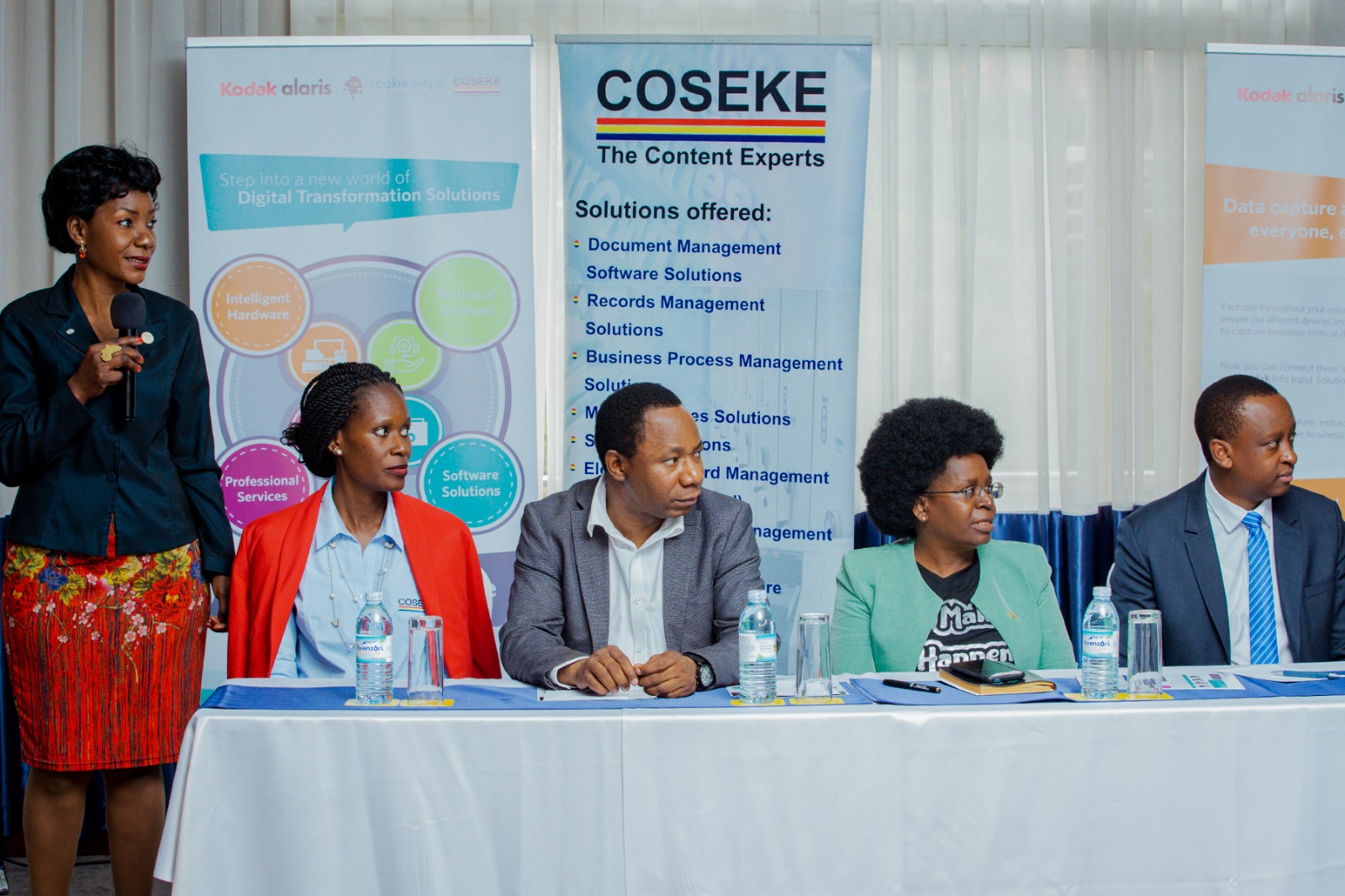
Coseke customers, mainly those that use Kodak Alaris products attended the one-day workshop held at Golden Tulip Hotel.
Macheta explained that digital transformation minimizes the risk of losing documents with important data. He said that most of the information in private and government has been physical and not well organized.
He explained that the first step to digital transformation is capturing the information into electronic form by using document scanners and other software tools that enhance their quality.
Benefits of digital transformation
Elias Mugambagye, the Business Development Manager at Coseke Uganda, noted that organizations need to digitally transform their workplaces by transferring data from manual to softcopy format because this simplifies their work and life.
When your work is organized in a digital form, you can easily and quickly find it, he said, adding that digitizing frees up physical storage and this saves money you would spend on renting a room to keep this data.
“If you digitize, you can reduce expenses and mitigate risks like losing this information to thieves or when there is a fire outbreak. What you need to store in a big room like this, you can store on a flash disc or the cloud,” he explained.
Jeff Thuo, the Managing Director of Coseke Group, said that by automating you can work fast and efficiently and this gives you an edge over the competition and this puts you in a better position in the market.
“For example, if you are a bank and fill in loan papers upcountry, and they have to come to Kampala for decision making, that can take two to three weeks but if you automate that process, in five seconds, it reaches Kampala and in three days a customer is able to get a loan,” he elaborated.
Macheta explained that keeping your records in digital format helps with authenticating and verifying documents and addresses concerns related to duplication.
Digitization and automation make documents and records accessible which in the end makes service delivery smooth and this is critical, Macheta said.
Tools for digital transformation
Before you embark on a digital transformation journey, Macheta advises that you need a digital transformation strategy, to begin with. He stated that the digital transformation strategy will inform you which tools you will need, what you will have to digitize, and how and when.
“Once you have the strategy in place, you will need hardware to capture documents digitally; that is why you will need document scanners with capture software which will add value to whatever you are scanning,” he advised.
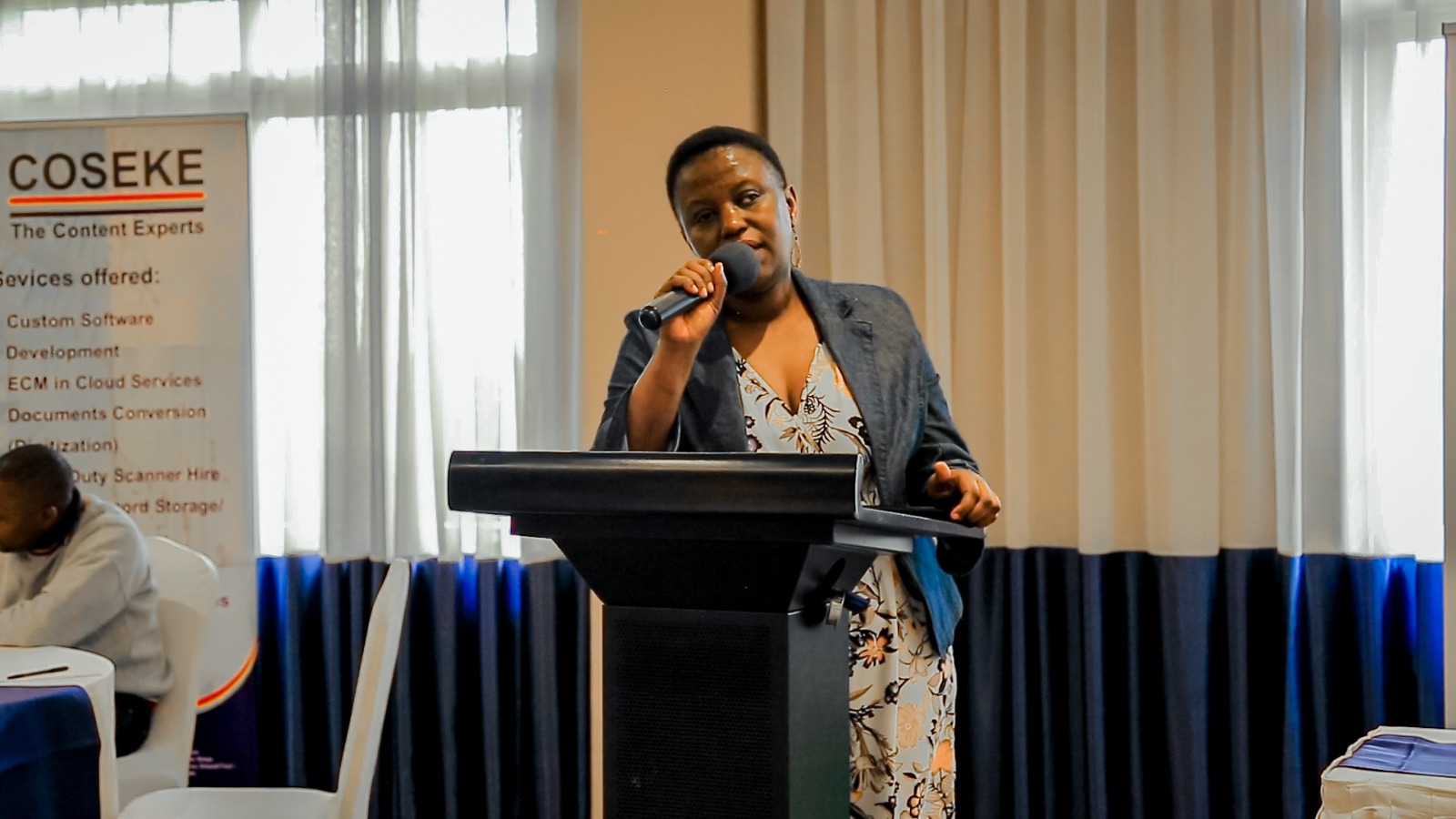
He explained that digitization is not only about scanning but also adding value to what you have scanned that is why you will need to manage whatever you have scanned using image processing tools and software for classification, automation and access in terms of document workflow as it moves from one person to another.
Rosemary Kisembo, a Ugandan software engineer and the Executive Director of the National Identification and Registration Authority of Uganda (NIRA), who has used Kodak products supplied by Coseke encouraged Records Managers in both Public and private sector to embrace Hyper Digital Transformation and use of analytics.
Safety and Security
While digital transformation has its risks, companies like Coseke and other service providers have safety measures to avert any risks that may arise like cyber hacking or other digital security breaches.
This is why we normally talk to our clients and share with them the type of solutions that we offer, Macheta said, adding that the main purpose of going digital is to secure data.
“To do this, we need to use systems that can be able to protect access to these records. Our systems don’t allow someone who, say, has stolen a document that has already been captured into digital to be accessed unless they use a specific tool that protects that document.
“When this document is being accessed during transfer, just in case it lands to someone it wasn’t intended for, our system provides for security and restriction tools which can protect and allow specific people using user rights access it,” Macheta said.
Further, on the issue of digital security, Thuo noted that different companies have got different data sets that require different security measures.
“At Coseke, we look at the nature of business and data you collect, and in compliance with the law, we then help you build the policy that takes care of the information,” he said.
Digital transformation good for innovation
Dr Monica Musenero, the Minister of Science, Technology, and Innovation, speaking at the workshop said the government has put in place a national strategy to facilitate digital transformation and fill up the gaps that can hinder technology transfer.
“There are plans that we have developed and we are looking for partners from all over the world to work with jointly; let us know what you know; if there are gaps, we are here to support you,” she told the gather at Golden Tulip Hotel.
The private sector is a very important partner, she said.



